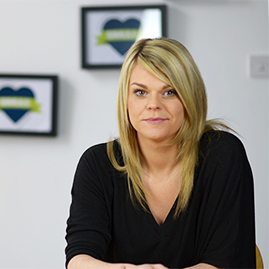Press Releases, What We're Doing
Scenario Generator saves PCTs £1m and helps prevent strokes
 Fiona Lindsay / Sep 24, 2010
Fiona Lindsay / Sep 24, 2010
County Durham and Darlington NHS use software to find best course of preventative stroke treatment.
24th September 2010: Strokes are the third biggest cause of death and the most common cause of serious disability in adults in the UK. In the NHS district of County Durham and Darlington (CD&D) there are an average of 1150 strokes every year, costing the PCTs around £12m of their annual budget. Working with Scenario Generator, the whole healthcare system simulation tool, CD&D have established a course of action which will not only help lower death by stroke in their district, but also produce savings of £1m.
Atrial Fibrillation (AF), the most common type of abnormal heart rhythm, is a preventable cause of stroke, but its identification and management is not well developed in primary care. CD&D are seeking to highlight the importance of AF, and to set out the interventions that will increase early detection and treatment to reduce the risk of stroke.
Having worked with The National Heart Improvement Priority Project, CD&D identified the patients in local practices with a high risk of developing a stroke caused by AF. From the 23 practices involved, only 55% of high risk patients were currently receiving preventative treatment for their condition. Based on these figures, CD&D needed to estimate the resources required to extend anticoagulation treatment to these other patients, and what the overall cost impact this would have for the NHS.
Scenario Generator is visual simulation software which allows NHS staff to test out real life scenarios in a risk free environment and, using its statistically accurate results, make evidence based decisions as to which changes will help an organisation the most. The software comes embedded with up-to-date population and disease prevalence data, allowing users to gain true insight into the effect changes will have. CD&D used Scenario Generator to model the path of care these patients currently follow, and tested ‘what if?’ scenarios to see the impact different methods of treatments would have.
The results of the analysis and modelling proved that while treating new patients with a mixture of preventative drugs would cost an extra £415,615 in the first year, treating all new patients with Warfarin, would save the NHS £352,414 by preventing strokes and related complications. By year five, CD&D could save over £1m simply by choosing the best pathway and treatment course as demonstrated by Scenario Generator.
“The main benefit of Scenario Generator has been the flexibility to modify the model as the project has developed,” says Dr. Mike Lavendar, Consultant in Public Health Medicine at CD&D, “We have been able to tackle different questions by adding additional elements to the pathway.”